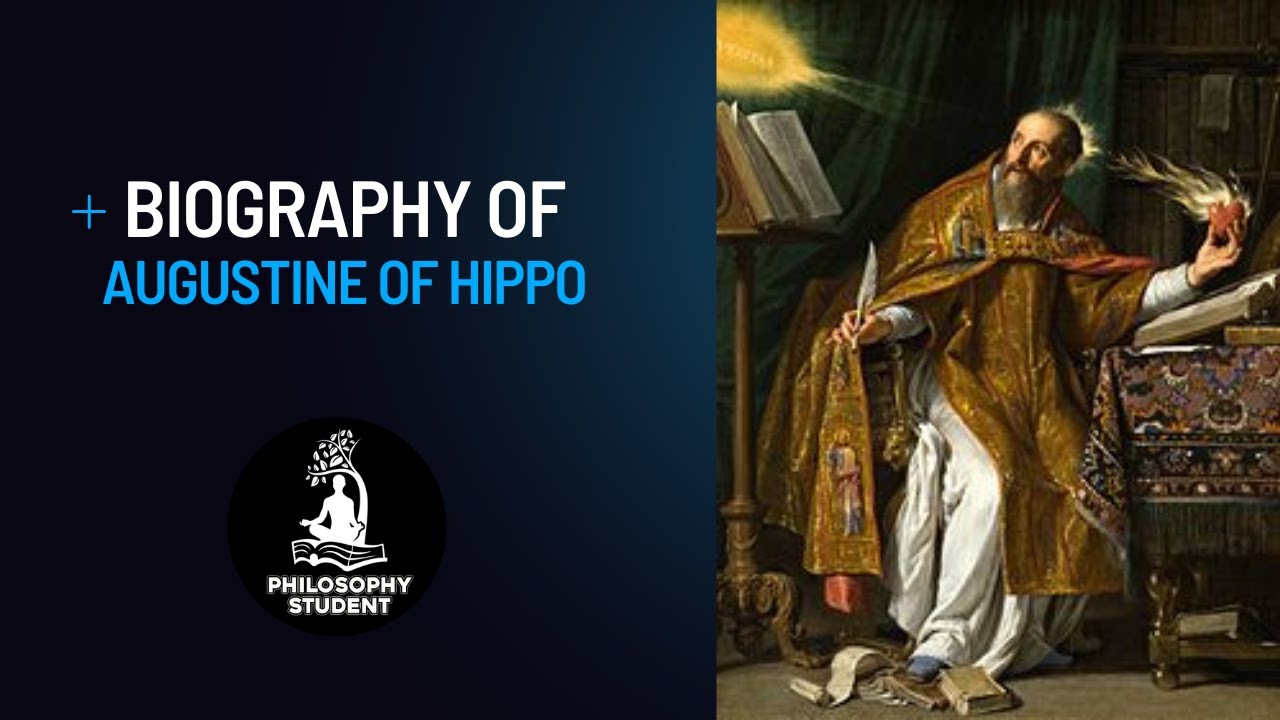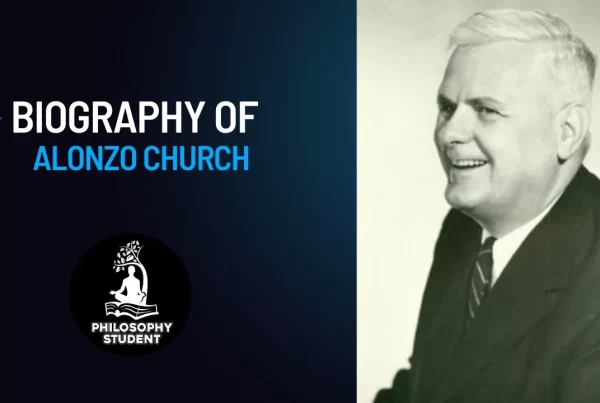Aurelius Augustinus, canonized in 1298 as St. Augustine, was born in Thagaste, Roman Africa (Souk Ahras, Algeria), on November 13, 354. An early theologian instrumental in the evolution of the Western Church, Augustine was a profound Christian philosopher but was also a philosopher in a much broader sense, as a student of epistemology and free will and with a deep interest in language and psychology. Without question, he was theologian committed to the revealed word of holy scripture, and yet his mindset was not dogmatic but driven by the spirit of inquiry.
He was the child of Romanized Berber parents. His mother, Monica (or Monnica), was a Christian. Patricius, his father, was a Pagan who did not convert to Christianity until he lay on his deathbed. Augustine had a brother, Navigius, and a sister, on whom history has conferred the name Perpetua.
Augustine began his schooling when he was eleven years old, attending a school at Madaurus (M’Daourouch), some twenty miles south of Thagaste. Here he was exposed to Latin literature, and here he first experienced sin. In his celebrated memoir, Confessions (397- 400), he recounts an incident in which he and his friends stole fruit from a neighborhood garden. His insight is telling. He stole not because he was hungry but because theft “was not permitted.” He recognized the wrong, calling it foul, but confessed that he “loved it,” loved his own “error.” Reflecting on this incident and insight, the mature Augustine concluded that humanity is inclined to sin and could therefore be saved only through the grace of Jesus. What is significant is that while the insight is consonant with Christian doctrine, it flows not from dogma but self-reflection. The budding theologian thought like a philosopher.At seventeen, Augustine journeyed to Carthage to further his education in rhetoric. There he lived a life of the flesh in the company of hedonistic companions. At the same time, however, a reading of Cicero inspired in him a love of knowledge and an interest in philosophy. He veered from Christianity and, against his mother’s wishes, became a Manichaean. He also began (at age seventeen) a fifteen-year relationship with a Carthaginian woman, with whom he fathered a son.
In 384, Augustine used a political contact to wrangle the prestigious post of rhetoric professor at the University of Milan. Here he met Ambrose of Milan (later, St. Ambrose), who inspired his conversion from Manicheanism to Christianity and his entrance into the priesthood. In the meantime, his mother, Monica, had arranged a marriage with an heiress. Augustine renounced his longtime lover, but because his betrothed was underage, marriage was delayed. In the interim, he made the decision to become a celibate priest.
Ambrose baptized both Augustine and his natural son, Adeodatus, in 387. The following year, Monica died, and he and Adeodatus returned to Africa, where they embarked on a comfortable residence at the family estate. But Adeodatus soon died, and Augustine sold his inheritance, giving the money to the poor. He retained only the large family house, which he converted into a monastery.
In 391, Augustine was ordained a priest in Hippo Regius (now Annaba, Algeria), earned renown as a preacher, and, in 395, was made coadjutor bishop and then full bishop of Hippo, serving as such until his death on August 28, 430.
His celebrated Confessions is considered an important documentation of religious conversion, but it is also a work of personal philosophy and, as such, is precocious in its modernity. Augustine argued that the true philosopher sets out to “know God and the soul” and therefore he saw no conflict between philosophy and theology. From a more modern philosophical perspective, Augustine is looked on as a Neoplatonist, the dominant philosophical tradition from the middle of the third century to the middle of the seventh. Within this framework, he explored the epistemology of skepticism versus divine illumination, arguing that God created the human mind to be receptive to illumination, which is available to all rational persons. While illumination makes use of the senses, it differs from all other forms of sense perception and is a means by which human beings can apprehend what God presents to them.
While exploring illumination, Augustine also addressed the philosophical problem of “other minds.” The extreme skeptic, noting that he can do no more than observe the behavior of others, asks how it is possible to know that any other person has a mind. Augustine argued that testimony (such as his own Confessions) is essential to the growth of knowledge; therefore, it is apparent that what others tell us does provide knowledge, even without independent evidence of the existence of minds in others. Similarly, divine illumination is knowledge of God, even without corroborating evidence.
Augustine also made philosophically sound arguments in support of freedom of will and the possibility of just war, arguing that, while Christians should be essentially pacifists, the pursuit of peace may have to be defended by war.
As an ethical philosopher, Augustine argued against slavery and in favor of tolerance toward Jews. He deserves to be considered a philosopher in the field of education, advocating the dialectic and dialogue mainstays of philosophical discourse since Plato’s Socrates—as powerful pedagogical vehicles.
Augustine has remained of more than theological or antiquarian interest to philosophers. Arthur Schopenhauer (1788-1860), Søren Kierkegaard (1813-1855), and Friedrich Nietzsche (1844-1900) were all devoted readers of Augustine, focusing primarily on his exploration of free will. Bertrand Russell (1872 1970) and Edmund Husserl (1859-1938) were intrigued by his meditations on the nature of time, and Hannah Arendt (1906-1975) wrote her doctoral dissertation of Augustine’s conception of love as the basis of a philosophy of social life.




































